#lizzie hexam
Explore tagged Tumblr posts
Text

10 notes
·
View notes
Text
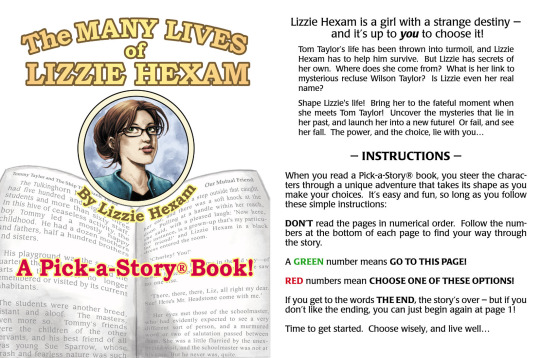
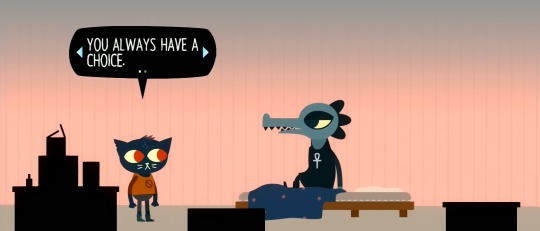


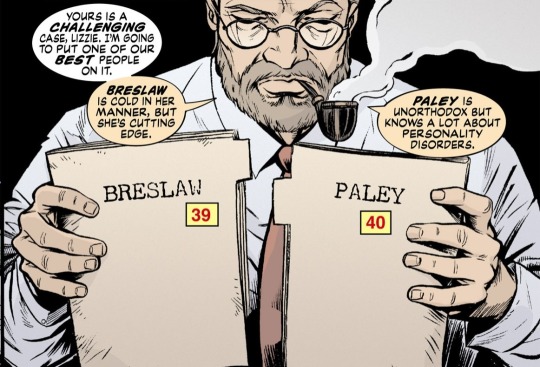
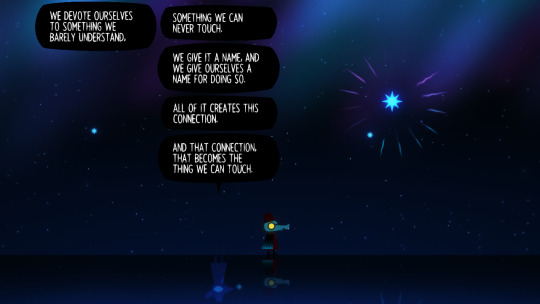


The Unwritten/Night In The Woods
"So fuck the truth. We dont know where it is, and we probably won’t know it when we see it. She just chose the story she needs right now. The story that keeps her standing. That's probably all any of us get to do./Um, so like, the constellations, I don't believe there's a whale out there, but I, uh, believe the stars exist and that people put the whale up there. Like, I dunno, we're good at drawing lines through the space between stars. Like we're pattern finders, and we'll find patterns, and we like really put our hearts and minds into it even if we don't mean to. So I believe in a universe that doesn't care and people who do”
Writing: Mike Carey
Penciller: Peter Gross
Inker: Ryan Kelly
Colors: Chris Chuckry, Jeanne McGee
Letters: Todd Klein
Editor: Pornsak Pichetshote
#night in the woods#the unwritten vertigo#Dc the Unwritten#Dc unwritten#Unwritten vertigo#Something something our choices make our reality we give things meaning#dc comics#vertigo comics#mae borowski#bea santello#lizzie hexam#angus delaney#Tommy Taylor#Tom Taylor#My posts
11 notes
·
View notes
Text
“It is not easy for me to talk to you,” returned Lizzie, in some confusion, “for you see all the consequences of what I say, as soon as I say it.”
— Our Mutual Friend (Charles Dickens)
3 notes
·
View notes
Text




She's so babygirl 💖
6 notes
·
View notes
Text
Trust Fall
Where am I?
Duchess Swan stands up and dusts herself off. She sneezes, and it comes out more like a honk, as she stirs the dust back up. She’s in a small, dusty room that doesn’t look like any she had ever seen in Ever After High. She had fallen into her story for her midterm hexam, except it wasn’t her story.
So far, every student who finished their hexams had ended up in a fairytale completely different than their own. When the first group of students came back with the tales of their hexam, a lot of the school had grown nervous. Even Duchess’s roommate, Lizzie Hearts, had hit the books, looking into a myriad of fairytales. When the second group came back, also spouting tales with twists no one had heard before, she began to hope.
Duchess’s story ended in tragedy, and it was no secret at Ever After that she hadn’t been looking forward to the hexams. Having to go through her story and find out what life would be like as a swan? Duchess wanted to put that experience off forever after. When she had heard about the story mix-up, she wondered, she hoped, that this was her chance to get her happily ever after. Even if it was only a fairytale.
Alright, Duchess, first order of business is to find out what story I’m in.
The room she is in doesn’t have a lot, just a bed, and window, and...is that hair? Covering almost every available surface is hair, making a thick sea of lavender, white, and black. Duchess lets out a groan. Of course she had to fall into the story of Rapunzel.
She wades through the hair and plops down onto the bed. It isn’t very ladylike, but who cared how she acted until her prince got here. She throws her head back, a little to harshly, and bangs it against the wall. She cries out as she rubs the tender spot.
She sighs and gets comfortable. She knows this part of the story well: waiting. It is a crucial skill for damsels, but one that Duchess hadn’t bothered to learn. Why learn to be the perfect damsel-in-distress when no one would come to save her? She blows a long strand of hair out of her face.
She looks around for something to do while she waits for her prince. There is a suspiciously large lump on the other side of the room. It could just be hair stacked on top of hair stacked on top of hair. But it could also be...something. With nothing better to do, Duchess makes her way back across the sea of hair and starts moving it out of her way.
She uncovers a vanity. It shows signs of wear, but it is fairy beautiful. She opens one of the drawers and finds it fully outfitted with makeup. Makeup that matches her perfectly.
She sits down and starts applying it. There’s no reason not to look hextra charming for her prince. She finishes her look quickly and laments her beauty for a moment. If she wasn’t already so stunning, she might have had more to do.
She is broken from her thoughts by the sound of a twig snapping. And another. And another. Is that her prince? She rushes to the window, nearly tripping over all of the hair. She can’t see anyone out there, but she can still hear the sounds of someone in the forest. She takes in a deep breath and screams.
“HELP! Someone save me! I’m trapped in the tower!”
She pauses to listen for a response. There is none.
“Hello? Is someone out there? I’m in the tower! I need rescuing! Help me! Pretty maiden in tower! Damsel in distress here!”
She takes in another deep breath. Still, no one calls back to her. In fact, she can’t hear any noise coming from the forest. Not even the sounds of birds chirping.
Her face falls. She backs away from the window and falls onto the bed. No one is coming for her. No one is looking for her.
Even in a different story, there is no one to save Duchess.
#eah#ever after high#eah fanfic#inspired by#duchess lets down her hair#duchess swan#this is unedited so if something sounds weird#it is#anyway#first chapter of my fanfic trust fall!#don't worry duchess your knight in shining armor is coming#since i started working on this#i've wanted to rewrite#the clock strikes cupid#bc hopper/cupid friendship deserved better#hopper/cupid frienship desereved better!!#screaming crying throwing up#getting off topic lmao
20 notes
·
View notes
Text
Lizzie, about what Headmaster Grimm said regarding their hexam results: "Try to enjoy what time we have left." It doesn't even make any sense.
Bunny: It means we've failed, Lizzie. It means no graduating, ergo no destinies, ergo no going back to Wonderland, ergo The End!
Kitty: "Ergo" wise up, Bunny.
Lizzie: You're over-reacting.
Bunny: I knew I should have cut ties with you lot a long time ago.
Lizzie: It's not our fault!
Bunny: Of course it's your fault! You've dragged me down to your level, your stupidity has finally rubbed off on me. I was a scholar when I met you, Lizzie, a scholar!
Lizzie: You were three!
#the return of the wonderlandians as derry girls quotes#ever after high#eah#eah derry girls#lizzie hearts#bunny blanc#kitty cheshire#eah incorrect quotes#incorrect eah#the wonderlandians
123 notes
·
View notes
Text
"OUR MUTUAL FRIEND" (1998) - Second Review
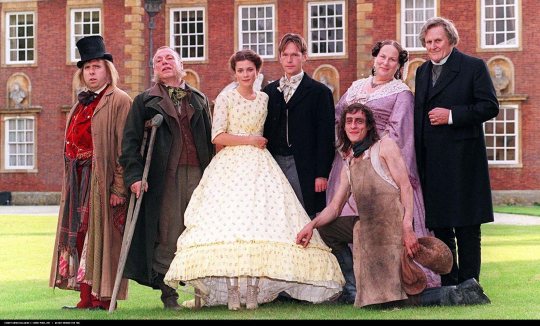
"OUR MUTUAL FRIEND" (1998) Second Review
Several years ago, I had written a review of "OUR MUTUAL FRIEND", the BBC's 1998 adaptation of Charles Dickens' 1865 novel. Needless to say, my opinion of it proved to be mixed. But after numerous re-watches of the four-part miniseries, I came to the conclusion that my views had undergone a tremendous change . . . as the following new review will convey.
During my recent re-watch of "OUR MUTUAL FRIEND", I continued to find it a complicated tale. It featured at least four subplots (and not three, as I had originally assumed). And they all stemmed from the alleged death of John Harmon, the estranged heir to a fortune created by his father, a former collector from London's rubbish. "OUR MUTUAL FRIEND" began with a solicitor named Mortimer Lightwood informing the circumstances on the death of his late client and the details of Mr. Harmon Sr.'s will to his aunt and a group of listeners at a London society party. According to Lightwood, Mr. Harmon made his fortune from London's rubbish. The terms of his will stipulated that his fortune should go to John, returning to Britain after years spent abroad. The will allowed John to inherit his father's money on the condition that he marry a woman he has never met, Miss Bella Wilfer. However, Lightwood received news that John Harmon's body had been found in the Thames River. He and his close friend, Eugene Wrayburn, head toward the river to identify the body. And it was this sequence that led to the following subplots:
*Mr. Harmon's employees, Nicodemus and Henrietta Boffin inherit the Harmon fortune and take Bella Wilfer on as a ward/companion to compensate for her loss, following John Harmon's "death".
*John Harmon fakes his death and assumes the identity of John Rokesmith, the Boffins' social secretary, in order to ascertain Bella Wilfer's character.
*Gaffer Hexam, the waterman and scavenger who found Harmon's "body", ends being accused of murdering "Harmon" by Hexam's duplicitous former partner, Roger "Rogue" Riderhood.
*While accompanying his friend, Mortimer Lightwood, to identify Harmon's body, Eugene Wrayburn meets and falls in love with Hexam's daughter, Lizzie.
*Bradley Headstone, the schoolmaster of Charley Hexam, Lizzie's younger brother, develops a romantic, yet violent obsession with Lizzie and a deep hatred of Eugene.
*Mr. Boffin hires a ballad-seller with a wooden leg named Silas Wegg to read for him. When he finds Harmon's will in one of the Harmon dust piles, Wegg schemes with a taxidermist named Mr. Venus to blackmail the newly rich dustman.
*Mr. and Mrs. Lammle, a society couple who had married each other for money and discovered that neither had any, plot to swindle Mr. Boffin of his money.
I have experienced a handful of movies, novels and television shows in which disparate subplots eventually form into one main narrative. A major example of this was the 2002 novel and its 2008 movie adaptation, "MIRACLE AT ST. ANNA". But I cannot recall any form of fiction in which a particular narrative divides into a series of subplots from one main action or character. When I first saw "OUR MUTUAL FRIEND", I found this narrative device not only original, but rather disconcerting.
The problem I initially had with "OUR MUTUAL FRIEND" was that I only enjoyed only one major subplot - the bizarre "love triangle" between Eugene Wrayburn, Lizzie Hexam and Bradley Headstone. I cannot deny that I found it very interesting and very tense. Yet another re-watch of the miniseries made me aware of the mistakes I had made in judgment. One, my views of the miniseries' other subplots turned out to be more interesting than I had initially assumed. It finally occurred to me how wealth, greed and/or class played major roles in Dickens' story. The Harmon fortune had attracted greedy types like Silas Wegg and the Lammles. Even Bella Wilfer was willing to use the Boffins to find a wealthy husband within London's high society. Gaffar Hexam's discovery of the fake John Harmon's body and the reward he had received led his greedy and jealous former partner to accuse him of murder.
John's deception also exposed a good deal of class bigotry in this tale. Upper-class types like Lady Tippins seemed appalled at the idea of lower-class citizens like the Boffins inheriting a large fortune. She seemed to harbor this attitude that attorney Mortimer Lightwood should automatically take control of the Harmon fortune. As the Boffins' protégé, Bella initially regarded John as beneath her, due to his position as the Boffins' social secretary, John Rokesmith. Class bigotry practically reeked throughout the love triangle between Lizzie, Eugene and Bradley. Despite being in love with Lizzie, the upper-class Eugene seemed more wiling to view her as a potential mistress, instead of a wife. Bradley Headstone, who came from the same class as Lizzie, seemed more than willing to marry her. Yet, he also regarded her as being socially beneath him, due to her lack of education. He seemed to believe Lizzie should be grateful to marry him and reacted with surprise when she rejected his offer. And Eugene not only regarded Bradley as a romantic rival, but also as a man who was socially beneath him. The miniseries ended with Mortimer Lightwood attending a society party aboard a River Thames steamer. He and a shy man named Mr. Tremlow defended a particular marriage that crossed class lines, despite the other partygoers' disapproval and contempt. This ending is one of the main reasons I truly enjoy this adaptation of Dickens' novel. I found it emotionally satisfying, yet very poignant.
Sandy Welch made some changes in Dickens' narrative. Instead of pursuing heiress Georgiana Podsnap and attempting to trap her into marriage with fortune hunter Fascinating Fledgby, Alfred and Sophia Lammles set their sights on the Boffins' money. Welch's screenplay had excluded Fledgby altogether, along with his moneylending business. These changes made sense to me, considering the Lammles' arc with Fledgby and Miss Podsnap had nothing to do with John Harmon or his fortune. The Lammles met a nameless heiress (a stand-in for Georgiana Podsnap?) at a rail station near the end, as they boarded a train for Dover and the English Channel. Due to Welch's erasure of the Fledgby character, she reduced Mr. Riah's character as a close friend of both Lizzie and her friend, dollmaker Jenny Wren. Mr. Riah only played a role by helping Lizzie find a job outside of London.
It seemed a pity that Welch had eliminated the Fledgby character and his arc with Mr. Riah. It would have given the miniseries a peek into Victorian anti-Semitism, something the novel managed to achieve on a small scale. But as I had pointed out - Fledgby and Mr. Riah's arc had no connection to John Harmon, his fortune and his deception. To understand what I am trying to say, let me clarify. All of the other arcs in "OUR MUTUAL FRIEND" either began with Mr. Harmon Sr.'s will or with John Harmon's actions following his arrival in London. The former's will led John to create and participate in his deception in order to judge Bella. If Mr. Harmon had not made that condition for John to marry Bella in order to inherit his fortune, chances are John would have never conceived his deception. He would have never been attacked by the man he had recruited to impersonate him. Hexam would have never found the impersonator's body and found himself falsely accused of murder by his former partner.
Even if Mr. Harmon's will had not changed, John could have simply adhered to and inherit his father's fortune, leading to a possible loveless marriage to Bella. With no body to find, Mortimer and especially Eugene would have never met Lizzie. As Charly Hexam's tutor, Bradley Headstone probably would have met Lizzie and fallen in love with her anyway. But I believe she still would have rejected him. It is possible the Lammles would have focused their attention on John. But I suspect they would have very little success in befriending him. If John had immediately inherited his father's fortune, the Boffins would have inherited one of the Harmons' dust piles. Does this mean Mr. Boffin would have hired Wegg as his reader anyway? I wonder.
I cannot deny that "OUR MUTUAL FRIEND" did such an excellent job in exploring the effects of wealth, greed and class in Victorian London. All or most of the subplots seemed to flow from John Harmon and his decision to fake his death. Like the River Thames that flows through southern England and London. Is it any wonder that Dickens had decided to set his novel along the river - even outside of London? The story began with Lizzie and and her father scavenging along the Thames and ended on that lovely moment when both Mortimer and a shy man named Mr. Tremlow defended a recent marriage that crossed class lines at a society party aboard a steamer on the river.
As for the production values for "OUR MUTUAL FRIEND", I still remain impressed as ever. David Odd's cinematography still strikes me as colorful and epic. I am not surprised that he had received a BAFTA Award nomination for his work. Malcolm Thornton won a BAFTA Award for the miniseries' excellent production designs. His recreation of mid-19th century London and the River Thames struck me as colorful, well-detailed and just outstanding. Mike O'Neil had earned a BAFTA nomination for his costume designs. A part of me wish he had won. I still find them beautiful and a near reflection of Britain in the 1860s, as shown in the images below:
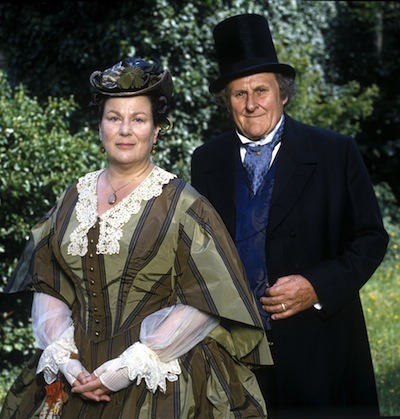
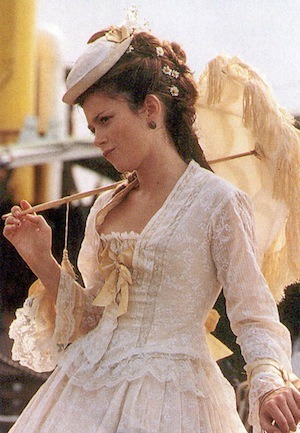
My opinion of "OUR MUTUAL FRIEND" may have improved over the years, but I still have a few issues with it. One of those issues remained John Harmon's deception regarding his identity - namely how it affected Bella Wilfer. I still find it problematic that John did not reveal his true identity to her, until a few months after their wedding. And I found Bella's lack of hostility toward his revelation implausible. Although I found Silas Wegg's attempt to blackmail Mr. Boffin interesting, I found his constant complaints about his target and plotting with Mr. Venus rather irritating after two episodes or so.
The performances featured in the 1998 miniseries more than satisfied me. I found Harmon's gradual love for Bella very interesting to watch, thanks to Steven Mackintosh's subtle performance. And Anna Friel did a great job in developing Bella Wilfur from a materialistic and ambitious young woman, to one for whom love and morality meant more to her than material wealth. "OUR MUTUAL FRIEND" also featured excellent performances from Peter Vaughn and Pam Ferris as the Boffins, Kenneth Cranham as Silas Wegg, Margaret Tyzack as the imperious Tippins, and Dominic Mafham as Mortimer Lightwood. The miniseries also featured first-rate supporting performances from the likes of David Schofield as the no-nonsense Gaffer Hexam, Anthony Calf and Doon Mackichan as the Lammles, Paul Bailey as Charley Hexam, Peter Wight as Mr. Wilfer, Cyril Sharps as the kindly Mr. Riah, Linda Bassett as pub owner Abby Potterson, Edna Doré as the kindly, yet proud Betty Higden; and Robert Lang as the reserved and shy Mr. Tremlow, whom I believe provided one of the best moments in the series.
But there seemed to be performances that I believe stood above the others. Timothy Spall gave one of his more subtle performances as the enigmatic taxidermist Mr. Venus, who found himself drawn reluctantly in Wegg's scheming. Some have complained that Katy Murphy had been too old, as a thirty-something actress, to portray dollmaker Jenny Wren, a character in her late teen or early 20s. But the other two actresses I have seen portray Jenny were either 30 or older, so I do not understand the complaint. And Murphy did such an excellent job in conveying Jenny's emotional, yet blunt personality. I thought David Bradley did a superb job in his portrayal of the sly, yet malevolent waterman, Rogue Riderhood. Unlike other actors in the role, he did not succumb to occasional histrionics.
In my previous review of "OUR MUTUAL FRIEND", I had accused David Morrissey of engaging in histrionics in his portrayal of the violently jealous headmaster, Bradley Headstone. I had been wrong. Morrissey only did it once in a scene that featured Lizzie Hexam's rejection of his marriage proposal. Otherwise, I thought the actor gave a brilliant performance. One would think portraying the reserved Lizzie Hexam would be a walk in the park for any actress. Yet, I believe Keeley Hawes took the portrayal to another level by not only conveying Lizzie's dislike of Headstone, and her wariness toward Eugene Wrayburn's feelings for her; but also her streak of insecurity that led her to doubt her worthiness for someone like Eugene. I had earlier accuse the actress of being unable of to express Lizzie's true feelings for Eugene until the last episode. But I forgot that Hawes did convey moments of attraction toward Eugene. And in portraying a reserved character like Lizzie, she did an effective job of conveying the character's penchant for keeping such feelings closely to her chest. I have said this before and I will say it again - I believe Paul McGann gave the best performance in "OUR MUTUAL FRIEND", for his portrayal of the ambiguous Eugene Wrayburn. If one closely observe the character, he is not exactly a nice man. At least most of the time. McGann did a beautiful job in his portrayal of the indolent, yet patronizing attorney; conveying both the negative and surprisingly, the character's positive traits. And thanks to McGann's performance, one could see Eugene's struggle between his love for Lizzie and his wariness over her class.
Do I still believe "OUR MUTUAL FRIEND" was flawed? Well . . . I point out a few. As I had stated in my previous review, the 1864-65 novel is not considered among Charles Dickens' best works. But my opinion of the 1998 adaptation certainly has improved a great deal over the years. Screenwriter Sandy Welch and director Julian Farino did excellent jobs in translating Dickens' tale to the television screen. And the production not only featured first-rate work from the crew, but also superb performances from an excellent cast led by Steven Mackintosh. If I must be honest, not only has my opinion of "OUR MUTUAL FRIEND" improved over the years, I now consider it one of the best adaptations of any of Dickens' works.
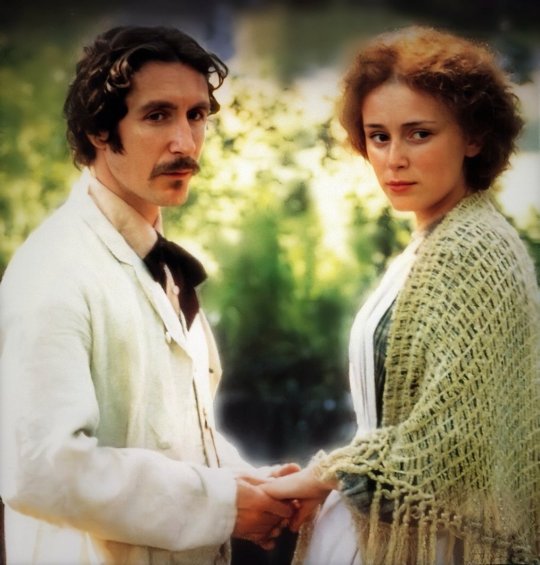
#our mutual friend#our mutual friend 1998#sandy welch#julian farino#steven mackintosh#anna friel#paul mcgann#keeley hawes#dominic mafham#peter vaughan#pam ferris#david morrissey#katy murphy#kenneth cranham#timothy spall#david bradley#paul bailey#peter wight#anthony calf#doon mackichan#linda bassett#cyril sharps#edna dore#robert lang#david schofeld#charles dickens#period drama#period dramas#costume drama
9 notes
·
View notes
Text
Current Submissions
Submissions remain open until ~10pm pst tomorrow (March 3rd); submit through this form or the ask box
Those who have secured spots on the bracket (3 or more submissions);
Elizabeth Bennett & Fitzwilliam Darcy from Pride and Prejudice by Jane Austen
Enjolras & Grantaire from Le Misérables by Victor Hugo
Victor Frankenstein & Henry Clerval from Frankenstein by Mary Shelly
Faustus & Mephistopheles from Dr Faustus by Christopher Marlowe
Ishmael & Queequeg from Moby-Dick by Herman Melville
Mina & Johnathan Harker from Dracula by Bram Stoker
Henry Jekyll & Gabriel Utterson from The Strange Case of Dr Jekyll and Mr Hyde by Robert Louis Stevenson
Other possible contenders (under read more);
Offred & Moria from The Handmaid's Tale by Margaret Atwood
Celie & Shug from The Color Purple by Alice Walker
Lestat & Marius from The Vampire Chronicles by Anne Rice
Gimli & Legolas from Lord of the Rings by JRR Tolkien
Samwise Gamgee & Frodo Baggins from Lord of the Rings by JRR Tolkien
Gandalf & Hobbits from the works of Tolkien
Romeo & Juliet from Romeo and Juliet by William Shakespeare
Clarissa Dalloway & Sally Seton from Mrs Dalloway by Virginia Woolf
Anne Elliot & Frederick Wentworth from Persuasion by Jane Austen
Emma Woodhouse & George Knightley from Emma by Jane Austen
Maurice & Alec from Maurice by EM Forster
Margaret & Thornton from North and South by Elizabeth Gaskell
Holden Caufield & Stradletter from The Catcher in the Rye by JD Salinger
Charlie & Patrick from The Perks of Being a Wallflower by Stephen Chbosky
Gene Forrester & Finny from A Separate Peace by John Knowles
Tom Sawyer & Huckleberry Finn from the works of Mark Twain
John Yossarian & the Chaplain from Catch-22 by Joseph Heller
Jane Eyre & Helen Burns from Jane Eyre by Charlotte Brontë
Lionel Verney & Adrian Windsor from The Last Man by Mary Shelly
Eugenie Danglars & Louise d'Armilly from The Count of Monte Cristo by Alexandre Dumas
Dante & Virgil from The Divine Comedy by Dante Alighieri
Hamlet & Horatio from Hamlet by William Shakespeare
Lizzie Hexam & Eugene Wrayburn from Our Mutual Friend by Charles Dickens
Phileas Fogg & Passepartout from Around the World in 80 Days by Jules Verne
Huckleberry Finn & Jim from the works of Mark Twain
Sherlock Holmes & John Watson from Sherlock Holmes by Sir Arthur Conan Doyle
Lord & Lady Macbeth from Macbeth by William Shakespeare
Beatrice & Benedick from Much Ado About Nothing by William Shakespeare
Gilgamesh & Enkidu from The Epic of Gilgamesh
Heathcliff & Catherine Earnshaw from Wuthering Heights by Emily Brontë
Mr. Collins & Elizabeth Bennett from Pride and Prejudice by Jane Austen
Victor Frankenstein & Adam ('the creation') from Frankenstein by Mary Shelly
Dorian Gray & Lord Henry from The Picture of Dorian Gray by Oscar Wilde
Rodion Raskolnikov & Mitya Razumikhin from Crime and Punishment by Fyodor Dostoyevsky
Rosencrantz & Guildenstern from Hamlet by William Shakespeare
First Mate Starbuck & Captain Ahab from Moby-Dick by Herman Melville
Charles Bingley & Fitzwilliam Darcy from Pride and Prejudice by Jane Austen
Jane Eyre & Mr. Rochester from Jane Eyre by Emily Brontë
Jean Valjean & Inspector Javert from Le Misérables by Victor Hugo
Victor Frankenstein & Robert Walton from Frankenstein by Mary Shelly
Mary Catherine Blackwood & Constance Blackwood from We Have Always Lived in the Castle by Shirley Jackson
Benvolio & Mercutio from Romeo and Juliet by William Shakespeare
Achilles & Patroclus from The Illiad
Ajax & Ajax from The Illiad
Jack & Ralph from The Lord of the Flies by William Golding
Telemachus & Theoclymenus from The Odyssey
Jo & Laurie from Little Women by Louisa May Alcott
Elinor Dashwood & Edward Farrars from Sense and Sensibility by Jane Austen
Charles Bingley & Jane Bennett from Pride and Prejudice by Jane Austen
Jo, Amy, Meg, & Beth from Little Women by Louisa May Alcott
Jack Seward & Abraham van Helsing from Dracula by Bram Stoker
Henry Jekyll & Edward Hyde from The Strange Case of Dr Jekyll and Mr Hyde by Robert Louis Stevenson
Ned Land & Conseil from 20,000 Leagues Under the Sea by Jules Verne
Earl of Montararat & Earl Tolloler from Iolanthe
Fogg, Passepartout, & Aouda from Around the World in Days by Jules Verne
Guy Montag & Professor Faber from Fahrenheit 451 by Ray Bradbury
Nick Carraway & Jay Gatsby from The Great Gatsby by F. Scott Fitzgerald
Napoleon & Squealer from Animal Farm by George Orwell
Antonio & Sebastian from Twelfth Night by William Shakespeare
Antonio & Sebastian from The Tempest by William Shakespeare
29 notes
·
View notes
Text
"OUR MUTUAL FRIEND" (1976) Review
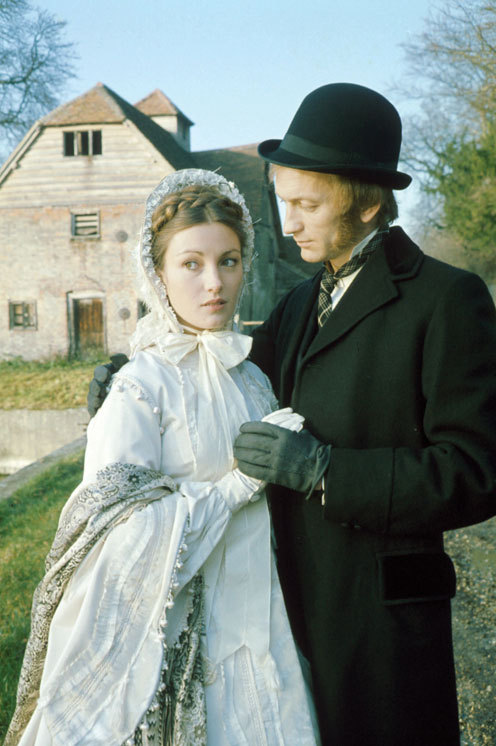
"OUR MUTUAL FRIEND" (1976) Review
I have a curious history with the 1998 adaptation of Charles Dickens' 1864-65 novel, "Our Mutual Friend". I had a lukewarm reaction to it when I first saw it. Following two re-watches of the miniseries, I became a major fan of it. So, when I discovered there had been an earlier adaptation of the novel, I did not hesitate to watch it. My efforts to view the 1976 miniseries, "OUR MUTUAL FRIEND" proved to be difficult, due more to availability reasons. But I finally managed to achieve it in the end.
Whether you are familiar with Dickens' tale or not, "OUR MUTUAL FRIEND" centered around the "death" of the heir to a fortune inherited from his father, a former collector from London's rubbish. The story begins with a solicitor named Mortimer Lightwood, who narrates the circumstances of the death of his client, a former dustman named Mr. Harmon, who collected London's rubbish, to his aunt and other guests at a society dinner. The terms of Old Harmon's will stipulated that his fortune should go to his estranged son John, who had returned to Britain after years spent abroad. John can inherit his father's fortune on the condition that he marry a woman he has never met, Miss Bella Wilfer. However, a Thames River waterman named Gaffar Hexam and his daughter Lizzie discover a corpse in the river with papers identifying the latter as John Harmon. When Mortimer learns of this death, he and his close friend Eugene Wrayburn head toward the river to identify the body. These events led to the following subplots:
*John Harmon fakes his death and assumes the identity of John Rokesmith, the Boffins' social secretary, in order to ascertain Bella Wilfer's character. John had recruited a sailor to impersonate him, but the latter betrayed him by drugging and later, robbing him. However, the sailor was later betrayed by others who not only robbed him, but also murdered him. The Hexams had discovered the sailor's body.
*Old Mr. Harmon's employees, Nicodemus and Henrietta Boffin inherit the Harmon fortune and take in Bella Wilfer as a ward to compensate for her loss, following John's "death".
*Gaffer Hexam's embittered former partner, Roger "Rogue" Riderhood falsely accused Hexam of murdering "Harmon".
*While accompanying his friend, Mortimer Lightwood, to identify Harmon's body, Eugene Wrayburn meets and falls in love with Hexam's daughter, Lizzie.
*Charley Hexam, Lizzie's younger brother, has a headmaster named Bradley Headstone, who becomes romantically and violently obsessed with Lizzie.
*Mr. Boffin hires a ballad-seller with a wooden leg named Silas Wegg to read for him. When he finds another will of Old Harmon's in the dust, he schemes with a taxidermist named Mr. Venus to blackmail his newly rich employer.
One of the reasons I had such difficulties in embracing the 1998 version of "OUR MUTUAL FRIEND" was the complex nature of the narrative. The story began with the death of the fake John Harmon and the latter's deception and spiraled out into different subplots. Years ago, I had made the mistake of assuming that most of these subplots had no connection whatsoever. Following my other viewings of the 1998 miniseries and this production, I now realize that the subplots had three major connections - money, class and John Harmon. Nearly every subplot had something to do with money, class or both. As for John Harmon . . . I found myself pondering on the fates of the main characters if John had not made that decision to recruit that sailor into his deception regarding his identity. Perhaps some of the subplots would have panned out - John and Bella's marriage (if he had agreed to the terms of his father's will), Charley Hexam's education, Lizzie Hexam's introduction to Bradley Headstone and her subsequent rejection of his marriage proposal. But there are some - Lizzie meeting Eugene Wrayburn, Eugene and Bradley's conflict, and Silas Wegg's attempt to blackmail Boffin - definitely would not have happened if John had not engaged in any deception on his part. Nearly the entire story seemed to be a case of "the Six Degrees of John Harmon".
One story arc from the novel seemed to be missing in this series - namely the attempt made by elite, yet impoverished newlyweds Alfred and Sophronia Lammle to befriend and scam a young heiress named Georgiana Podsnap. I can understand why the screenwriters had never included this arc into the miniseries, considering that the Lammles and Miss Podsnap had no connection to John Harmon, whatsoever. But apparently, the screenwriters had decided to delete them altogether, unlike screenwriter Sandy Welch, who had used the Lammles to go after Mr. Boffin in the 1998 adapation.
And how did "OUR MUTUAL FRIENDS" handled the narrative's multi-arcs? I thought director Peter Hammond, along with screenwriters Julia Jones and Donald Churchill managed to handle them quite well. Despite the various arcs being scattered to winds, all three managed to convey how they all connected in the end. My only complaint was how the director and the writers introduced the various arcs. I noticed that they mystery surrounding the discovery of John Harmon's body seemed to dominate the series' first episode, whereas the introductions of the Boffins and Bella Wilfer seemed to dominate the second. This seemed to give "OUR MUTUAL FRIEND"'s narrative a "paint-by-the-numbers" style in the miniseries' first third. From Episode Three and onward, Hammond, Jones and Churchill seemed to have no trouble juggling the various arcs within an episode.
But as much as I had enjoyed "OUR MUTUAL FRIEND", I have a few quibbles. Like a good number of BBC/ITV costume dramas between the 1950s and the 1980s, this production seemed to suffer from from the occasional slow pacing, due to Hammond shooting the miniseries more like a stage play. Granted, there were a few scenes that seemed avoid this fallacy, due to being filmed in an exterior setting - the Hexams' discovery of the fake John Harmon's body, Lizzie Hexam's discovery of the dying Betty Higden and Bradley Headstone's attack upon Eugene Wrayburn. But a good number of scenes - mainly those with interior settings and those that featured Silas Wegg and Mr. Venus' blackmail conspiracy - seemed to drag nearly forever, to the point that I found myself wondering if I was watching a televised stage play. I have one last complaint. The miniseries ended with the main characters briefly discussing Bradley Headstone's fate with a few words, not long after Eugene and Lizzie's marriage. As much as I had enjoyed this production, I found this ending rather abrupt and cold - quite disappointing, when I recall how the 1998 miniseries had ended.
As much as I had enjoyed many of the performances in the miniseries, there were the occasional bouts of hammy acting that left me wincing. For me, the biggest offenders proved to be Alfie Bass, Edmond Bennett, David Troughton, and Kathleen Harrison. Do not get me wrong. They all managed to convey their characters' personalities very well. But I believe they had indulged just a bit too much in stagey or hammy acting for my taste. But there were performances that I had actually enjoyed. Granted, performers like Leo McKern and Polly James, who portrayed Mr. Boffin and Jenny Wren respectively, had their moments of hammy acting. But I thought they managed to give first-rate performances in the long run, creating some memorable interpretations of their characters. However, the series featured some excellent supporting performances from the likes of Andrew Ray, Hilda Barry, John Collin, Ray Mort, Patricia Lawrence and Ronald Lacey.
The miniseries also featured some outstanding performances. They included John McInery as the intelligent, yet compassionate John Harmon; Lesley Dunlop, whose Lizzie Hexam managed to be warm and caring without any taint of treacly behavior; Jack Wild as Lizzie's eager and ambitious younger brother Charley Hexam; and Warren Clarke as Bradley Headstone, who managed to be both sympathetic, yet frightening at the same time. Yet, I believe the two best performances came from Nicholas Jones and Jane Seymour as Eugene Rayburn and Bella Wilfer. Jones gave a subtle, yet very complex performance as the roguish Eugene, who seemed torn by his love for Lizzie and his reluctance to pursue her honestly, due to her lower class. Seymour's portrayal of Bella struck me as equally complex, as she managed to convey her character's growing development from the mercenary and shallow girl to a warm, generous and yet spirited woman.
Aside from the opening shot of the Thames River for each episode, I must admit that I found myself unimpressed by Elmer Cossey's cinematography and Sam Barclay's lighting. Not only did I find the miniseries' visuals rather flat, but also a bit too dark. On the other hand, I thought Chris Pemsel's production designs pretty spot-on. I thought he did a competent job in re-creating mid-19th century London and England. I especially have to give praise to Robin Fraser-Paye's costume designs. I found his costumes - especially for female characters like Bella Wilfer, Lizzie Hexam, Mrs. Boffin and Jenny Wren - rather exquisite, as shown in the image below:
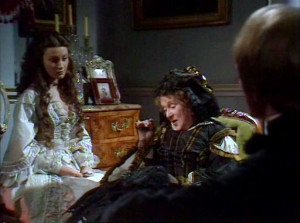
As for the hairstyles featured in "OUR MUTUAL FRIEND" . . . I have mixed feelings about them. I have no idea who the hairstylist was, but he or she did managed to come close in re-creating mid-19th century hairstyles. Only those worn by most of the younger female characters seemed to be loose curls or flowing curly hair in the style of those featured in many pre-Raphaelite paintings - especially by Lesley Dunlop and Polly James. Although such hairstyles were popular in mid-19th century art (especially in Britain), I have grave doubts that many women - or many young women between the 1840s and the 1860s wore their hair in such a manner.
Overall, I cannot deny that "OUR MUTUAL FRIEND" was a first-rate adaptation of Charles Dickens' 1864-1865 novel. Yes, I had a few issues that included the miniseries' photography, some writing decisions, a few over-the-top performances and the belief that I felt I was watching a filmed play. But despite these quibbles, "OUR MUTUAL FRIEND" also featured some top-notch performances from a cast led by John McInery and a screenplay by Julia Jones and Donald Churchill that did Dickens' novel proud.

#costume drama#period drama#period dramas#charles dickens#our mutual friend#our mutual friend 1976#victorian age#john mcinery#jane seymour#lesley dunlop#nicholas jones#warren clarke#leo mckern#polly james#andrew ray#ronald lacey#alfie bass#kathleen harrison#hilda barry#john collin#david troughton#ray mort#patricia lawrence#edmund bennett#peter hammond#john harmon#bbc drama#julia jones#donald churchill
1 note
·
View note
Text
I keep seeing articles about how Our Mutual Friend is All About Money and how money corrupts and so on.
And... sort of? I mean, money is definitely a prominent theme, especially in storylines like Bella Wilfer's and Mr Wegg's.
But on the other hand, one of the most prominent storylines in Our Mutual Friend is that of Eugene Wrayburn & Lizzie Hexam & Bradley Headstone. These three characters certainly have their own Money Issues, but money is not the driving force of the storyline or of the friction between these characters. Education, birth, and the concept of respectability are all more important than money. Money does play a part (e.g. Eugene has sufficient private income that he doesn't need to practice his profession which a. explains why he is Like That; b. opposes his idleness to the industriousness of Bradley and Lizzie; and c. gives him a way to change), but money is just one of many factors which contributes to this storyline and to the comparative social class of the three characters. [The character of Charley Hexam is of course an important part of this storyline. Charley is notably interested in respectability, not money.]
So the book being All About Money doesn't really feel right to me. If I were going to pick one theme that I think the novel is 'about', it would be Class in general, and all the many different factors that contribute towards a character's social class, and therefore how changeable social class is (there are several characters in the book who change class, or are trying to change class or maintain class, etc).
Even the storylines that are more obviously About Money are rarely just about money. For example, Mr Wegg doesn't just want money, he wants it specifically from Mr Boffin. This sense of entitlement to Mr Boffin's money stems primarily from Mr Boffin's inferior education. Meanwhile, the Lammles manage to function in Society for a long time without money, showing that there is far more to social class than money.
I think it's also notable that we have multiple "villains" or almost-villains in the novel, and that they span the range of classes, from Fascination Fledgeby right in the highest ranks of society, down through Mr & Mrs Lammle, Bradley Headstone, Mr Venus, and Mr Wegg, all the way down to Rogue Riderhood in what can possibly be described as the 'underclass'.
So anyway. This is all a very long-winded way of saying that next time I read Our Mutual Friend, I am going to try to pay attention to as many of the different axes of class as I can, including:
Birth
Wealth
Possessions
Income
Occupation
Education
Respectability
Company (e.g. friends and family and how they can reflect on a person)
Manner, speech and actions
If anyone has any further thoughts of things that contribute to class that I should be paying attention to, or just has any thoughts in general, please do share them. :)
#this is a really poorly structured post i know#i just keep seeing things saying it's all about money and that just makes me think more and more about all the *other* stuff#and eventually this word vomit came out sorry#i left it in my drafts a few weeks to see if i could find a better way of talking about this but i can't sorry#our mutual friend#our mutual friend spoilers#sort of#class#classism#also i'm sorry for the shade eugene i love you but you're a dick and you know you're a dick#op tag#queue
1 note
·
View note
Text
Thank you for the tag @honest-trifles!
Tagging: anyone who wants to (it's fun)
Three Ships:
Mortimer Lightwood / Eugene Wrayburn (/ Lizzie Hexam) from Our Mutual Friend
George Talboys / Robert Audley from Lady Audley's Secret
The most compelling new-to-me ship I've come across within the last six-ish months is Lucy Snowe / Monsieur Paul Emanuel from Villette.
First ever ship: Polgara / Durnik from David Edding's The Belgariad series.
Last Song: What Can I Do If the Fire Goes Out? by Gang of Thieves
Last Movie: I'm currently halfway through 2019's The Personal History of David Copperfield (the one with Dev Patel). I can't remember what came before that... probably superhero films with my mum last time I visited home.
Currently Watching: Galavant.
Currently reading: I'm currently taking a break from Thackeray's The Newcomes to read A Rogue's Life by Wilkie Collins. I try to read a page in French a day, so am very slowly working my way through a book called Sombre Été by Annabella Baker. Books I'm reading via substacks: Dracula, Great Expectations, Moby Dick, and The Sorrows of Young Werther. Theoretically I haven't given up on The Lightning Conductor from the Literary Letters substack yet but I still haven't got through the December 3rd email 😅. [side not: All of these except Sombre Été and The Lightning Conductor are actually by audiobook, usually from librivox.]
Currently consuming: A nectarine
Currently craving: A lie-down.
Tag 9 people you want to get to know better. Or however many. Whatever.
The lovely @tlonista and @electrawasright tagged me in this one and I haven’t done it in a while soooo here goes!
Three ships: Dreamling (Sandman), Jayvik (Arcane), Rinch (Person of Interest)
First ever ship: I’ve given this answer before but new followers since then so… I didn’t find online fandom culture until later in life (2020 to be exact) and the first ship I stumbled into was Mystrade from Sherlock. Mystrade shippers are lovely people and gave me a fantastic intro to online fandom.
Last song: (not counting stuff on tv shows) Man Down by Rihanna. I would really love to share my Spotify “Happy Music” playlist but I don’t think I can do that without doxxing Surfski (we share an account).
Last movie: I honestly can’t remember the last time I watched a movie.
Currently reading: Sandman: The Wake. And lots of fan fiction.
Currently watching: We cycle through a bunch of shows which is why it takes me forever to watch something. At the moment: Succession, Ted Lasso, Person of Interest, Interview with the Vampire, and we’re doing old seasons of Drag Race as the thing we have on during workouts.
Currently consuming: Nothing, it’s bedtime. But the last thing I consumed was peanut butter from the jar while making kiddo’s lunch.
Currently craving: Time off from work that won’t result in me feeling guilty or more stressed when I get back.
Tagging some lovely folks from my notifications with absolutely zero pressure (seriously if you don’t want to do this for any reason, just don’t. you don’t owe me an explanation). @jinkies-21 @epoxide @amn159 @handahbear @porthos4ever @ununpredictableme @janimoon @melmey
Also tagging my beloved @the-real-surfski in his first tag game with a pass to skip the shipping questions if he wants. 😘
#i wrote this yesterday and forgot to post!#went for that lie-down#thanks for the tag 😊#tag game#i'm reserving judgement on the newcomes and a rogues life right now#but i'm not sure i'd recommend either of them#the newcomes has above-average colonialism even for a victorian novel#it's also really long#a rogue's life is very barry-lyndon-esque which is not really my cup of tea but it is at least short and i prefer collins' writing style#as for sombre été all i can really say about it at the moment is that it's at about my reading level#long post
29 notes
·
View notes
Text
Our Mutual Friend: Lizzie Hexam [INFJ 2w1]
Our Mutual Friend: Lizzie Hexam [INFJ 2w1]

Function Order: Ni-Fe-Ti-Se Lizzie goes off what she ‘foresees’ in the fire; she sees that her brother must leave home and gain an education to become a fine gentleman, and also that this will eventually divide them and cause him to walk away from her, but she still urges him to follow her intuition and go to school. She insists the allegations against her father are false, despite any evidence…
View On WordPress
17 notes
·
View notes
Text

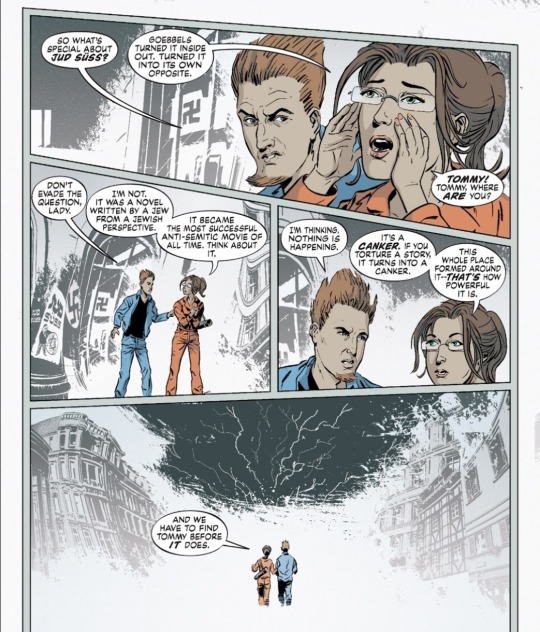
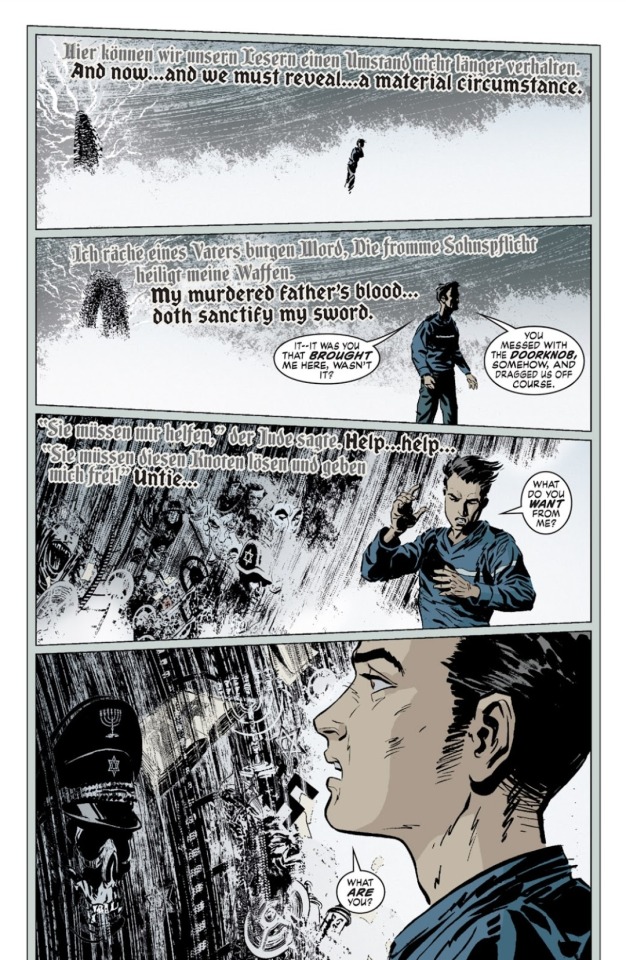
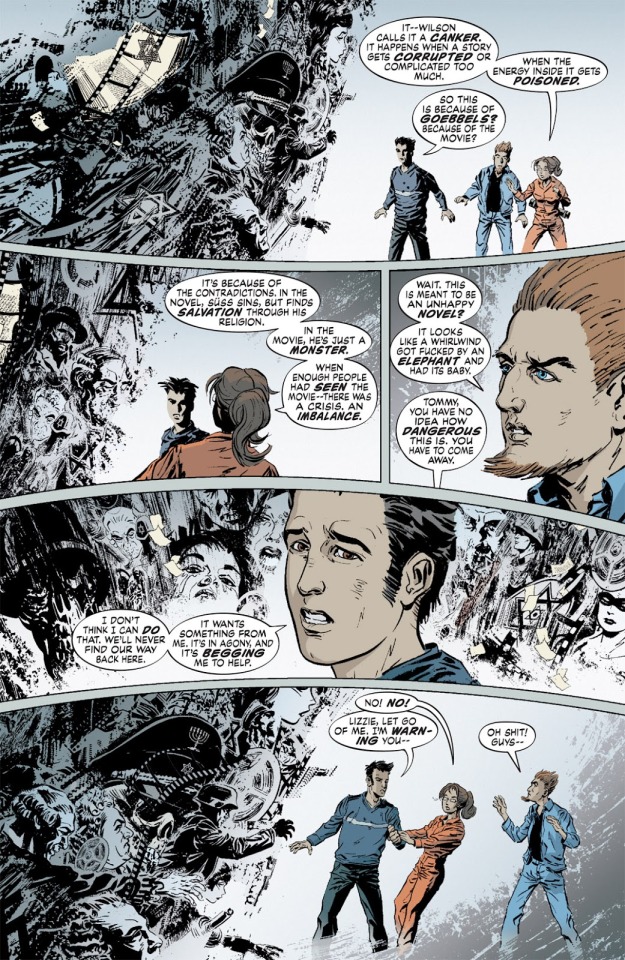
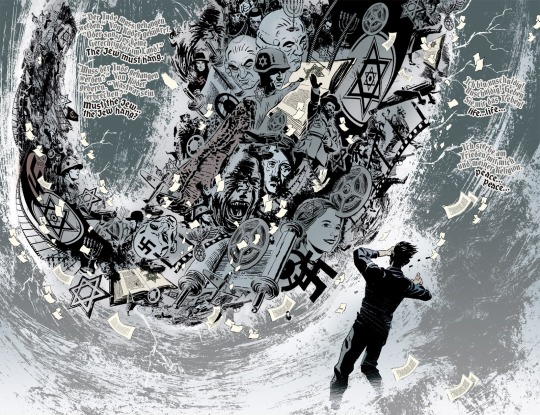

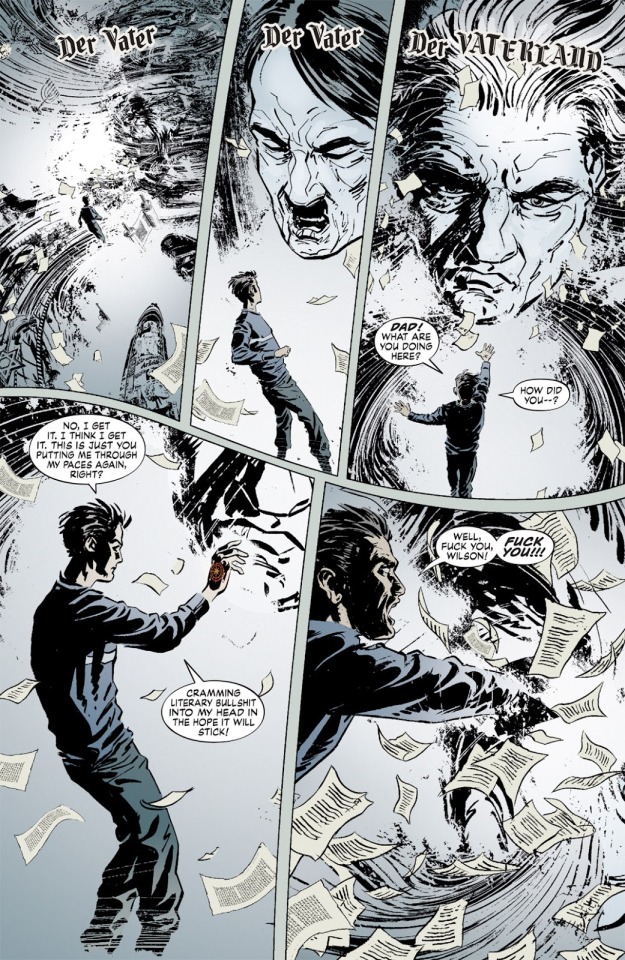
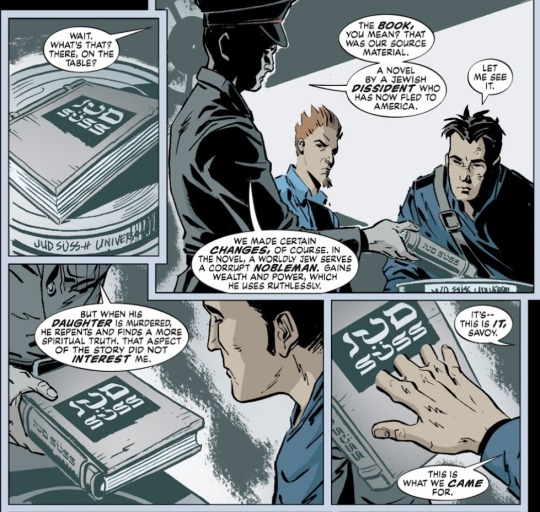
Tom(my) Taylor heals Jud Süss
The Unwritten #10-11
Writing: Mike Carey
Art: Peter Gross
Colors: Chris Chuckry
Letters: Todd Klein
#mike carey#peter gross#Chris Chuckry#todd klein#the unwritten vertigo#The Unwritten#dc vertigo#vertigo comics#Tom Taylor#Tommy Taylor#Lizzie hexam#Richie savoy#tw antisemitism#antisemitism#Tw nazis#Jud süss
5 notes
·
View notes
Text
“If... you should see me wandering, Lizzie, call my name and I think I shall come back.”
-Eugene Wrayburn to Lizzie Hexam
Our Mutual Friend (Charles Dickens)
#books & libraries#victorian literature#charles dickens#our mutual friend#Eugene Wrayburn#Lizzie Hexam#relationships
9 notes
·
View notes
Text
If I don't get fresh Phil & Keeley content soon I'll start getting really silly with my crossovers.
HHHHHHH I want Keeley Hawes and Philip Glenister to star in something together again so BAD
14 notes
·
View notes
Photo

The Unwritten #27, by Yuko Shimizu.
3 notes
·
View notes